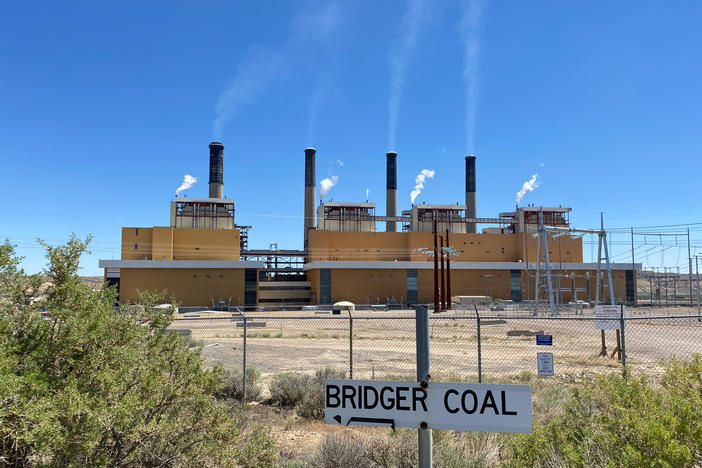Section Branding
Header Content
In Historic Move, Biden To Pick Native American Rep. Haaland As Interior Secretary
Primary Content
Deb Haaland would be the first Native American Cabinet secretary. She opposed many Trump environmental rollbacks and considers climate change "the challenge of our lifetime."
Transcript
STEVE INSKEEP, HOST:
President-elect Biden said he wanted his administration to reflect America, and two of his nominees to lead his environmental agenda appear to support that promise. Michael Regan would be the first Black man to lead the Environmental Protection Agency if confirmed by the Senate, and New Mexico Congresswoman Deb Haaland is Biden's pick for the Interior Department. She would be the first Native American to serve as a Cabinet secretary. NPR's Nathan Rott reports Haaland's nomination is especially symbolic.
NATHAN ROTT, BYLINE: The Department of the Interior is a massive agency responsible for about one-fifth of all the land in the United States. It deals with natural resources and wildlife, recreation and national parks. But it's also responsible for the relationship between the federal government and the people those lands were taken from.
KATRINA PHILLIPS: There are a number of scholars who have done really great work to show how the creation of national parks was predicated on the removal of native peoples.
ROTT: Katrina Phillips is a history professor at Macalester College in Minnesota, and she's a member of the Red Cliff Band of Lake Superior Ojibwe. And she says it's fair to say that for most of its history, the Interior Department has been used as a tool to oppress indigenous people in the U.S., which is why she says she's still in shock that Deb Haaland, a member of the Laguna Pueblo in New Mexico, has been nominated to lead it.
PHILLIPS: To have someone who understands this history and Indigenous sovereignty and land rights and treaty rights is just - I mean, I'm just - I'm so happy right now. It's just hard to believe that this nomination came through.
ROTT: A large coalition of Native American tribes, along with environmental groups and progressive leaders, pushed for Haaland to get the post, not just because of the symbolism but because of her experience. She's a congresswoman who served on a committee with oversight of Interior, and she comes from New Mexico, a fossil fuel-dependent state that is trying to transition to renewable energies. In an interview with NPR before her nomination, Haaland made clear she'd want the country as a whole to try to do the same.
(SOUNDBITE OF ARCHIVED NPR BROADCAST)
DEB HAALAND: Climate change is the challenge of our lifetime, and it's imperative that we invest in an equitable, renewable energy economy.
ROTT: President-elect Joe Biden has said he wants the country to be carbon neutral by the year 2050. And as Interior secretary, Haaland would have a big role in shaping that future. Roughly one-quarter of all greenhouse gas emissions in the U.S. come from public lands. She also said she'd restore trust with the Interior's 70,000-some employees, prioritize conserving 30% of all U.S. land and water and...
(SOUNDBITE OF ARCHIVED NPR BROADCAST)
HAALAND: Undo some of the damage that this Trump administration has done to our environment.
ROTT: Native Americans and other minorities are disproportionately affected by climate change and pollution. And Dallas Goldtooth, founder of the Indigenous Environmental Network, says it would be invaluable to have someone in charge of Interior who understands that. But he says the fight is not over.
DALLAS GOLDTOOTH: We're not stopping here. Like, we celebrate this victory, but we, as a climate justice movement, as an Indigenous rights movement, are going to continue to push the Biden administration to live up to its promises.
ROTT: And to do so in an equitable way.
Nathan Rott, NPR News.
(SOUNDBITE OF BALMORHEA'S "BEHIND THE WORLD") Transcript provided by NPR, Copyright NPR.
Correction
A previous version of this audio said Haaland is a two-term congresswoman. She is in her first term.
Bottom Content



